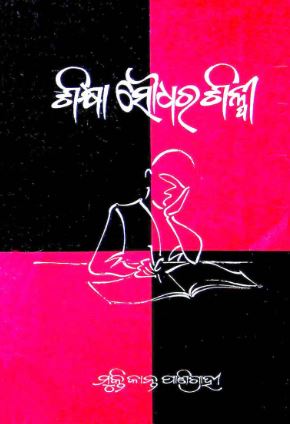Muktikant Panigrahi’s novel “Siksha Soudhara Silpi” stands as a monumental narrative that delves into the intricate tapestry of education and development within the tribal communities of Odisha. The novel, which translates to “The Artist of Education,” encapsulates the essence of social change and the pivotal role of education in transforming marginalized societies.
Set against the backdrop of Odisha’s picturesque landscapes, the novel intricately weaves a story that reflects the socio-economic challenges faced by tribal communities. As readers traverse through the pages, they encounter a world where the purity of tribal traditions coexists with the pressing need for modern educational practices. This duality serves as a recurring theme, inviting readers to contemplate the balance between tradition and progress.
The protagonist, a passionate educator, embodies the spirit of change that Panigrahi envisions for tribal communities. With an unwavering commitment to uplifting the marginalized, the educator embarks on a journey to establish a school that caters to the needs of tribal children. The narrative crescendos as the protagonist faces numerous hurdles—cultural resistance, financial constraints, and societal apathy—that amplify the complexities surrounding education in these regions.
What makes “Siksha Soudhara Silpi” particularly compelling is its portrayal of the unique educational methodologies that respect and integrate indigenous knowledge. Panigrahi’s decision to highlight alternative forms of education is both refreshing and significant. Instead of imposing a one-size-fits-all approach, the protagonist advocates for an educational framework that honors tribal history, language, and practices. This respect for local culture empowers the students, fostering a sense of identity and pride that is often lost in conventional educational systems.
Moreover, the novel sheds light on the transformative power of education in combating poverty and empowering women within tribal circles. Through the stories of female characters who aspire for knowledge and autonomy, Panigrahi emphasizes the critical link between education and gender equality. These narratives resonate with many readers, illustrating how education can dismantle systemic barriers and pave the way for social change.
Another notable aspect of “Siksha Soudhara Silpi” is its exploration of community involvement in the educational process. The protagonist actively engages with tribal elders, parents, and community leaders, recognizing their crucial role in shaping the educational landscape. This collective effort fosters a sense of ownership, encouraging families to invest in their children’s education. Such community-centric approaches highlight the importance of collaboration, reinforcing the idea that progress is most sustainable when rooted in local engagement.
Panigrahi’s lyrical prose paints vivid imagery of the tribal lives and landscapes, allowing readers to immerse themselves in the experiences and struggles of the characters. His ability to evoke empathy prompts reflections on the broader implications of education for tribal development in India. The narrative urges readers to contemplate their role in advocating for educational reforms that prioritize marginalized voices.
In conclusion, “Siksha Soudhara Silpi” is more than just a novel about education; it is a call to action for all those who believe in the transformative power of knowledge. Muktikant Panigrahi’s masterful storytelling not only entertains but also enlightens, making it a significant contribution to the discourse on education, tribal rights, and social development. As we navigate the complexities of modern society, Panigrahi’s work serves as a reminder that true progress is achieved through unity, respect for culture, and an unwavering commitment to education.
Books Info
| Books name | Siksha Soudhara Silp |
| Author | Muktikant Panigrahi |
| No Of pages | 38 |
| Publisher | NA |
| Publication | 2009, 2e. |
| Printed At | Jio Graphix |
| Distributor | NA |

